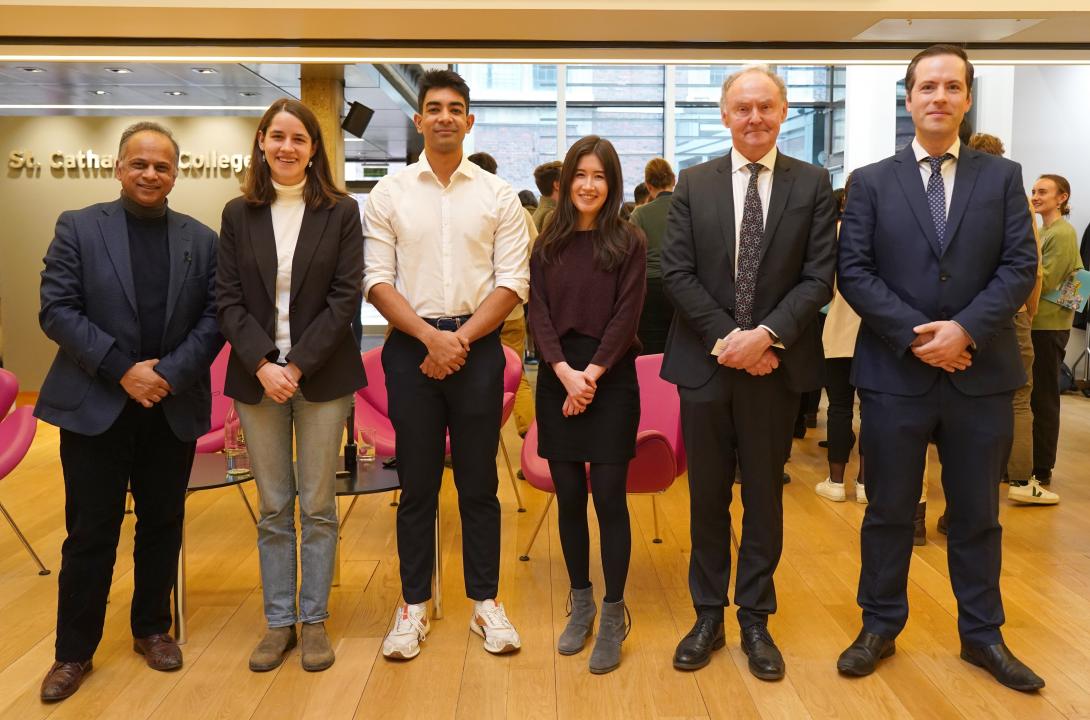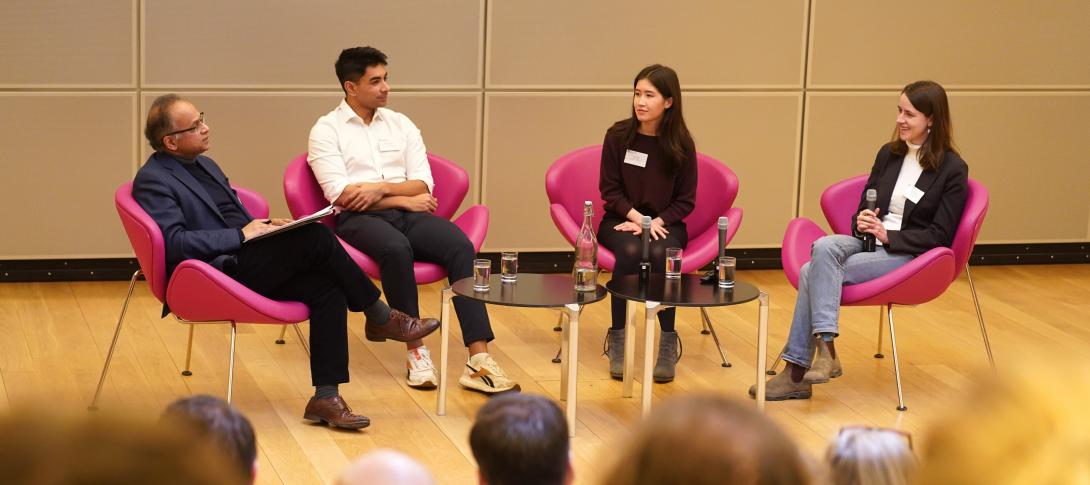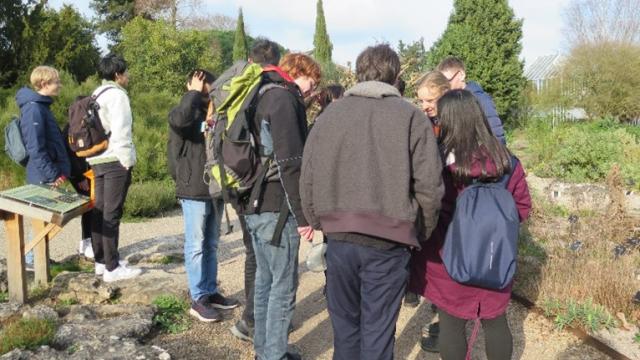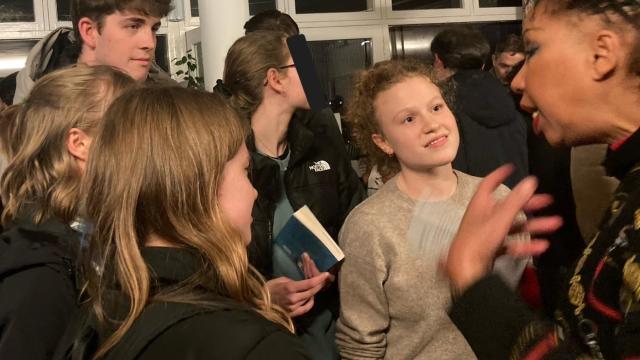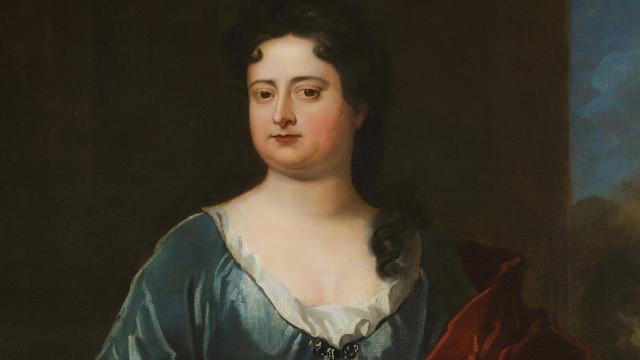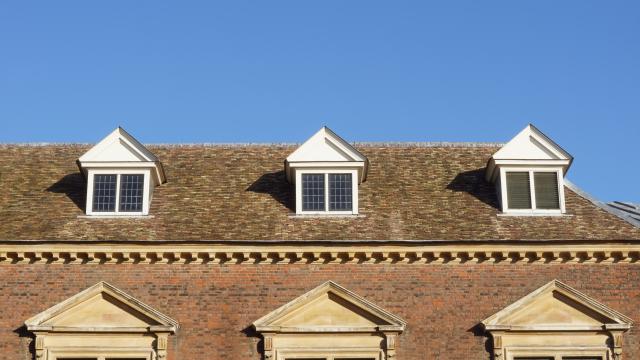
A special celebration of the Harding Distinguished Postgraduate Scholars Programme has been held at St Catharine’s College. The programme supports outstanding PhD students in any discipline across the University of Cambridge, thanks to the generosity of our alumnus Sir David Harding (1979, Natural Sciences; Honorary Fellow 2013), through the donation from the David and Claudia Harding Foundation. A significant proportion of Harding Distinguished Postgraduate Scholars are based at St Catharine’s (roughly five each year).
The 2022 cohort of Harding Distinguished Postgraduate Scholars attended the first in-person Welcome Event since before the pandemic, and they were joined by Scholars from the three previous cohorts to highlight the continued momentum of the programme, and to mark the beginnings of an alumni network.
Neil Chatterjee is the first Harding Scholar to complete his PhD, with research focused on the development of a novel non-editing gene therapy for use in broad spectrum cancer treatment, and was part of a panel discussion with members of the 2021 Harding Scholars cohort, Claire Fuller and Amelia Holcomb.
The conversation was chaired by Pro-Vice-Chancellor for Education Professor Bhaskar Vira, with Professor Sir Mark Welland (2016) as Master of St Catharine’s, providing a welcome address, and James Holmes, the Executive Director of the David and Claudia Harding Foundation, also in attendance to talk to the Scholars.
During the discussion, the core tenets of the programme - academic freedom and empowerment, putting curiosity in its purest form, and the fundamental belief in the power of interdisciplinarity, the value of diverse perspectives and combining research areas - were the main themes.
The Scholars reflected on the merits of the ethos, how it has benefitted them personally in their scholastic journey, how being intellectually inquisitive can have real world impact and shared their thoughts on how interdisciplinarity has had an influence on their research.
Amelia, whose research aims to develop new remote sensing and computer vision technologies to aid in the study and conservation of forest ecosystems, is based in the Faculty of Computer Science and Technology. She commented:
“I’m one of the cohort that started in 2021 so our Welcome Event wasn’t able to be held in person. It’s so nice to finally get everyone together. Seeing people face to face is so important. I was chatting to someone who is in genomics, and he said as a sort of side project he had looked into some stuff with satellite remote sensing, and I said ‘OK, your side project!’. But we had this really interesting conversation about how we are able to do high-resolution detection of various small-scale events. That is just a casual conversation, and we’re never going to do that over email, but just to get to talk was really great.”
Claire, who is working in the Department of Chemistry on her PhD research using machine learning to gain insight and control over the properties of fluorophores constructed using supramolecular host-guest interactions, said:
“It was great to hear from my two peers who were also presenting about their research and how interdisciplinary it is. Having the whole community to back us up, who are interested in hearing what we have to offer and our thoughts about our own PhDs, is just nice.”
Neil, a student at Christ’s College, submitted his PhD last spring, and is now studying Medicine at St George’s University of London as he wishes to unite his research with practice:
“I think it was really interesting hearing how everyone has a similar experience but also how different they are, and I think it was really helpful for the new batch of scholars. It allows the younger people to ask around. I was just talking to a new student who has come in, and we had three different people there, with completely different perspectives, to give them a broader idea of what is there and what they can do, and what they can come up with that’s new.”
Professor Vira led the panel discussion with the Harding Scholars and said:
“All three reflected on how the kind of support they receive from the programme enables them to do unusually interesting projects. It was great to see the connections. The idea of interdisciplinarity, and how the Harding Scholars put this into practice, was so evident to me because even though their projects are completely unconnected, you can start to draw some connections.
“I feel that is of real value to this community because everyone is pursuing such different pieces of research but by talking to each other, can benefit from that interaction. It was good to see their reflections on how important it is that the type of support that the programme offers has enabled them to do things that actually truly wouldn’t have been possible anywhere else.”
Reflecting on the Harding Distinguished Postgraduate Scholars Programme, Professor Vira said:
“There is the generosity of secured funding, but also the real emphasis on curiosity-driven research and across a wide range of subjects. The fact that the programme is not constrained, in terms of the disciplines that it focuses on, enables students to develop their projects at the intellectual frontier. The Scholars do have a research allowance which is available upfront, they don’t need to apply for it or request it.
“Amelia talked about this - in a department like computer science, field-based research is quite unusual, and so is funding support for it. The programme enables her to go off and do some field-based research in places that are really important for her work. It shows how the way the programme has been designed actually enables the students to achieve what they are trying to do.”
